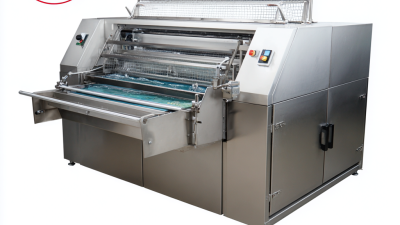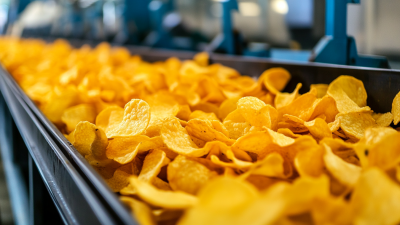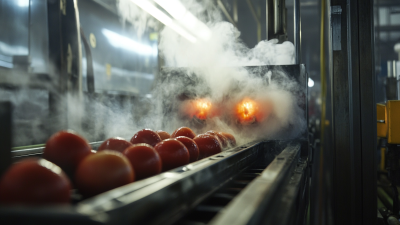
The global snack food industry is witnessing remarkable growth, with the potato chips segment being a significant contributor to this trend. According to a recent report by Grand View Research, the global potato chips market is projected to reach approximately USD 38 billion by 2027, highlighting the increasing consumer demand for various flavors and packaging options. As businesses strive to meet this rising demand, selecting the right
Potato Chips Packing Machine becomes crucial for efficiency, product quality, and overall profitability.
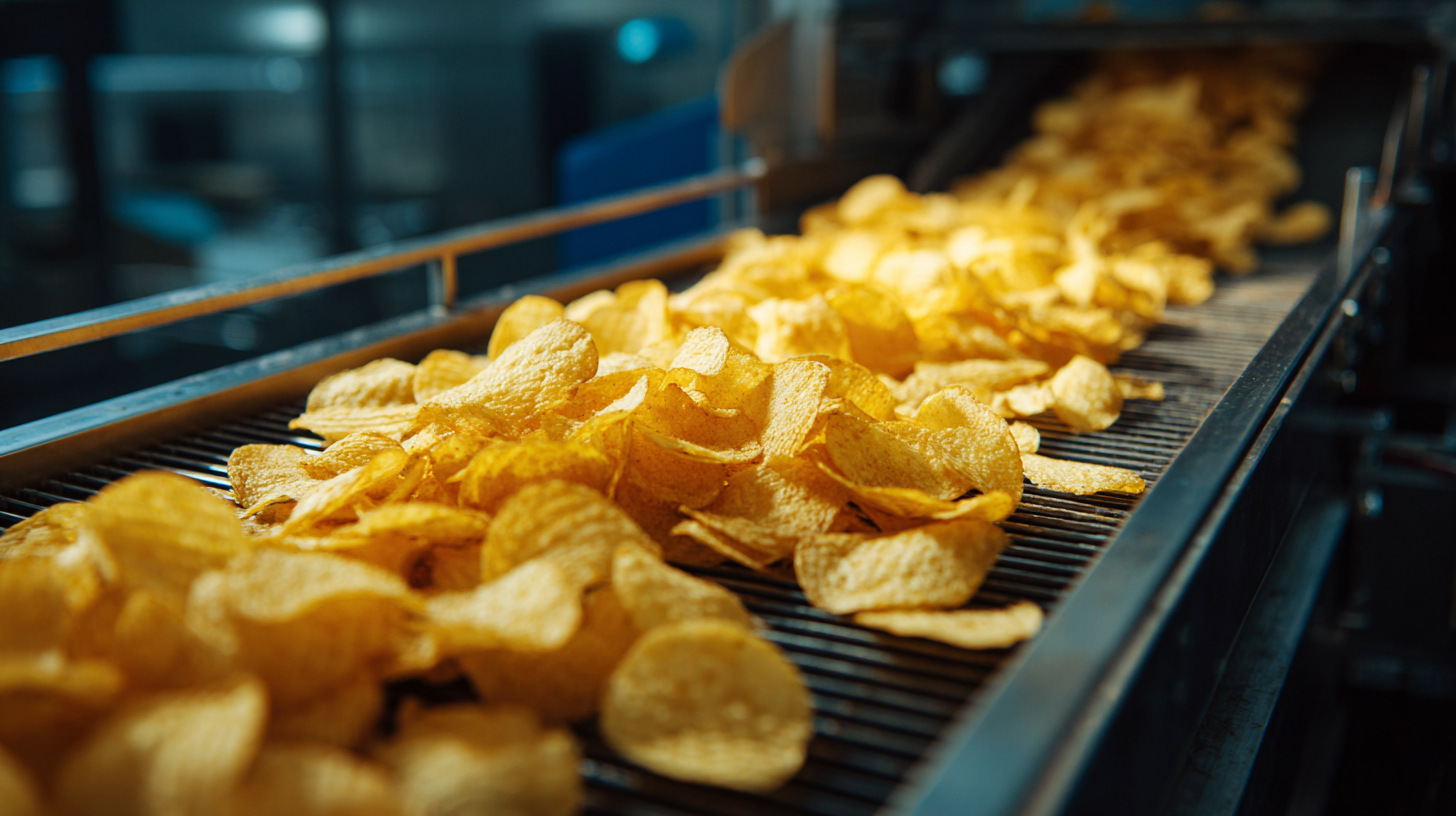 With advancements in technology and varying production capacities, choosing the perfect packing machine tailored to your specific business needs is essential for staying competitive in this thriving market. Understanding the key factors and features of these machines can help manufacturers optimize their operations and enhance product presentation, ultimately attracting more customers.
With advancements in technology and varying production capacities, choosing the perfect packing machine tailored to your specific business needs is essential for staying competitive in this thriving market. Understanding the key factors and features of these machines can help manufacturers optimize their operations and enhance product presentation, ultimately attracting more customers.
When selecting a potato chips packing machine, understanding your production requirements is crucial to making the right choice. First, consider the scale of your operations. Are you a small manufacturer producing artisanal chips, or a large-scale supplier aiming for mass production? This distinction will guide you in determining the machine's capacity and speed. A smaller operation may benefit from a versatile machine that can handle different pack sizes, while larger manufacturers might prioritize high-speed models that can operate continuously without compromising quality.
Additionally, analyze the specifications of your potato chips, such as size, shape, and packaging type. Different products may require varying sealing methods, whether it’s vacuum sealing for freshness or pillow packaging for a retail-ready presentation. Ensure that the machine you choose is adaptable to these needs. Furthermore, consider the integration of technology—features like programmable settings, automated feeding systems, and easy maintenance protocols can streamline your production process, enhancing efficiency and output. Tailoring your choice to your specific production requirements will ultimately lead to greater satisfaction and success in your business.
When selecting a potato chips packing machine for your business, several key features should be at the forefront of your decision-making process.
First and foremost, the machine’s capacity is crucial. Understanding your production requirements will help you choose a model that aligns with your output goals, ensuring efficiency.
Additionally, you should consider the machine's speed; a faster packing speed can significantly enhance your productivity, especially during peak times.
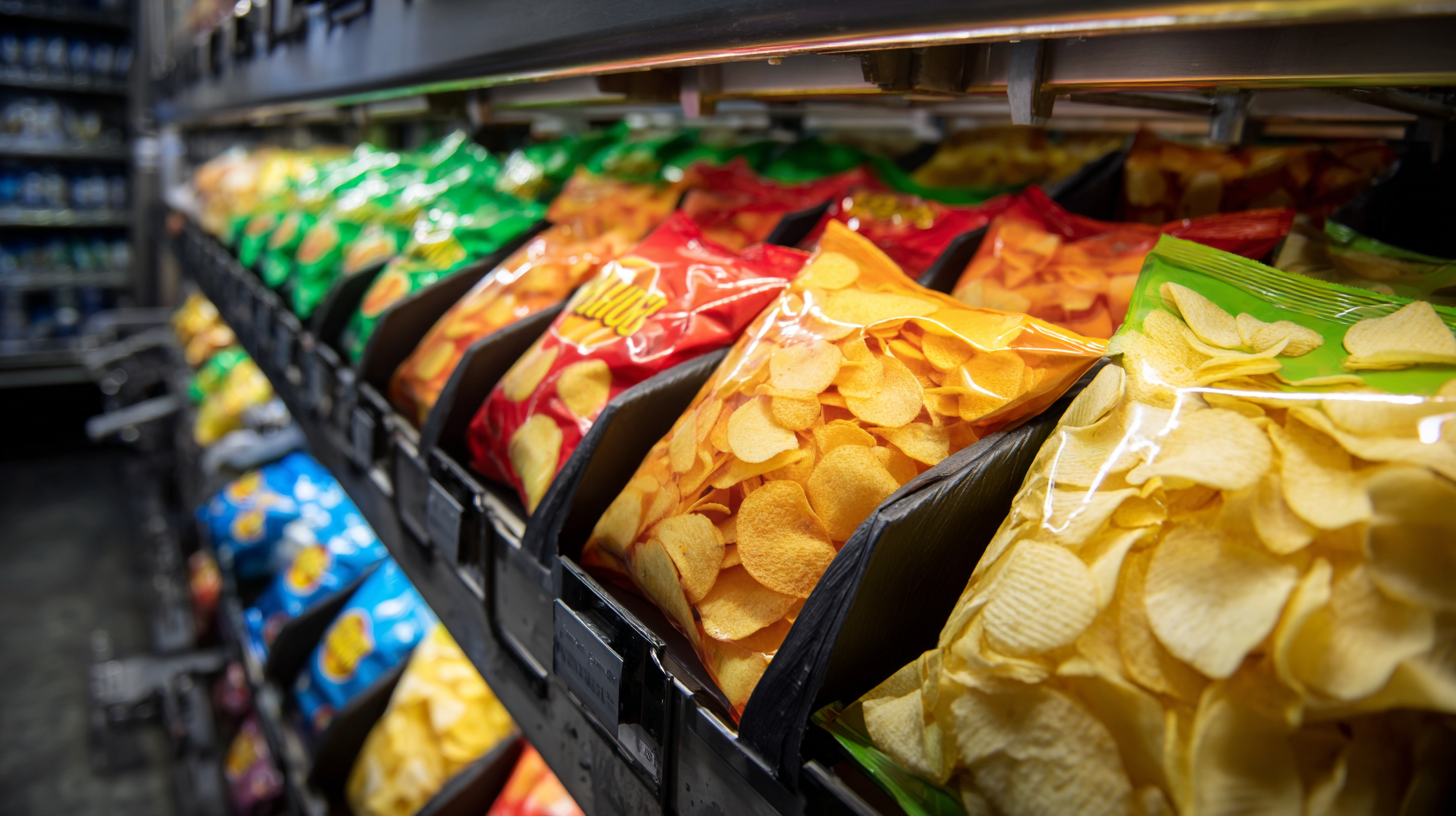
Another essential feature to evaluate is the versatility of the machine. Ideally, it should accommodate various bag sizes and shapes, allowing for greater flexibility in packaging options. Furthermore, ease of use and maintenance is vital. A user-friendly interface and straightforward maintenance procedures can save time and reduce downtime. Finally, ensure the machine meets industry standards for hygiene and safety to maintain the integrity of your product while adhering to regulatory requirements. By focusing on these critical features, you can make an informed decision that will benefit your business in the long run.
When selecting the ideal packing machine for potato chips, it’s essential to understand the various types available on the market. Common options include vertical form-fill-seal (VFFS) machines, horizontal flow wrappers, and tray sealers. According to a recent industry report by Grand View Research, the global potato chips market is expected to grow at a CAGR of 5.4% from 2021 to 2028, indicating the increasing demand for efficient packaging solutions. VFFS machines, in particular, are praised for their versatility and high-speed capabilities, making them suitable for businesses with significant volume requirements.
Another key factor to consider is the type of packaging material needed. Flexible packaging is often preferred for potato chips as it helps maintain freshness and prolong shelf life. The same Grand View Research report highlights that flexible packaging holds a share of over 40% in the potato snacks market due to its lightweight and resource-efficient nature. Additionally, advancements in technology have led to machines with integrated weighing systems and controlled atmosphere packaging options, further enhancing the quality and safety of the end product. By carefully evaluating these different packing machine types and aligning them with specific business needs, manufacturers can optimize their production lines and meet consumer demands effectively.
When considering the acquisition of a potato chips packing machine, evaluating your budget and investment potential is crucial. Capital budgeting plays a significant role in this decision-making process, as it helps businesses assess the profitability of acquiring new machinery. According to industry reports, the global market for packaging machinery is projected to reach approximately $50 billion by 2025, with an annual growth rate of 4-5%. This highlights the importance of making informed investments to stay competitive.
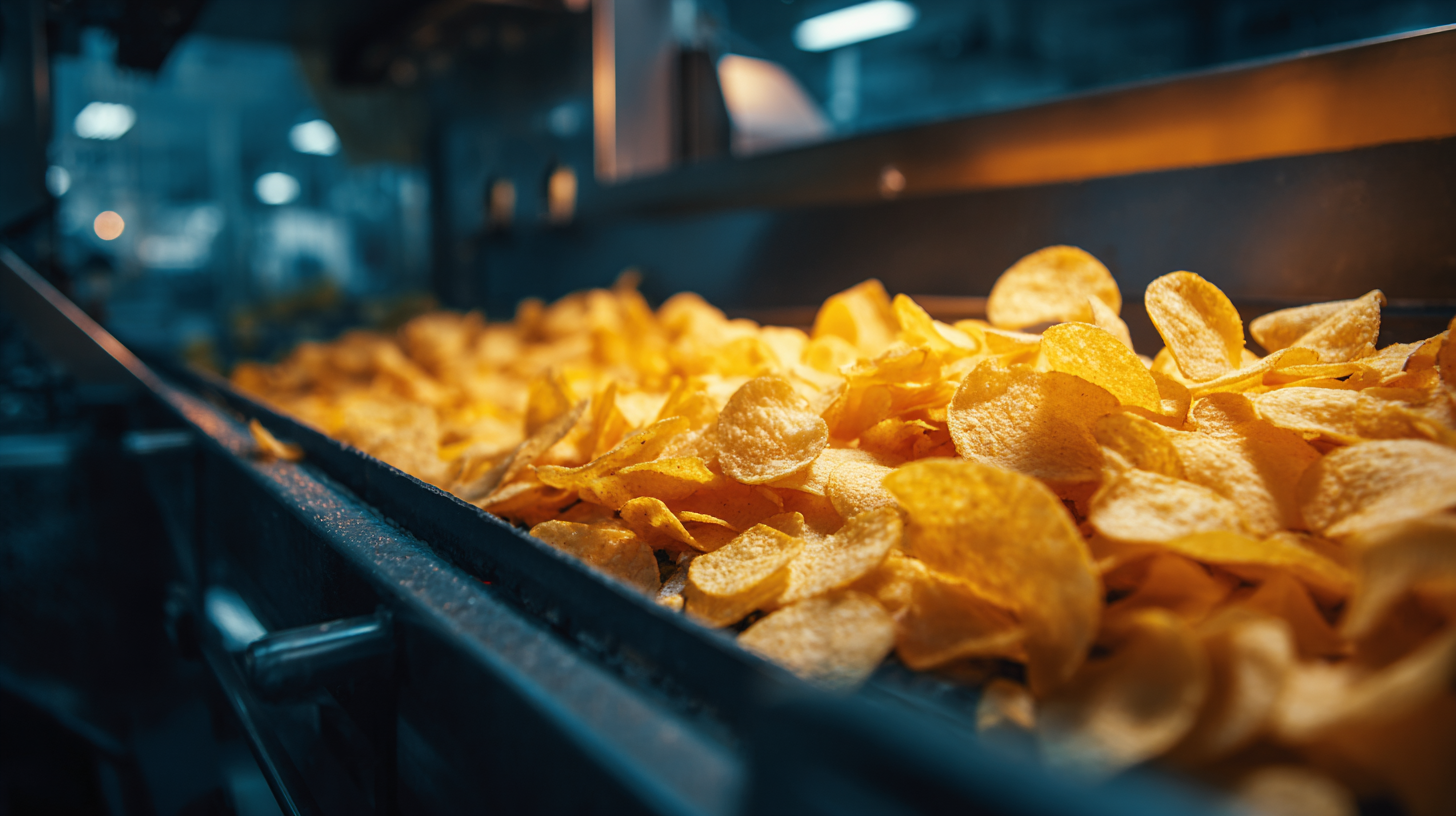
To effectively evaluate your investment, it's essential to analyze both initial costs and long-term benefits. A robust machine may cost more upfront but can lead to greater efficiency and lower operation costs over time. For instance, opting for machines with advanced automation features can reduce labor costs by up to 25%.
Tips: Consider conducting a break-even analysis to understand when your investment will start to pay off. Additionally, review different financing options or partnerships that may ease the burden of initial costs while ensuring you invest in high-quality machinery that supports your production needs.
When selecting a potato chips packing machine, one cannot overlook the importance of maintenance and support to ensure the equipment's longevity. Regular maintenance not only prolongs the lifespan of the machine but also enhances its efficiency, minimizing unexpected downtimes that can disrupt production. Establishing a maintenance schedule and adhering to it can significantly impact your operational consistency.
**Tip:** Always consult the machine's manual for specific maintenance instructions, including routine checks on critical components like seals and conveyors. Consider investing in training for your staff to handle basic maintenance tasks like cleaning and lubrication.
Furthermore, having a reliable support system in place is crucial. Choose a supplier that offers comprehensive after-sales service and quick response times. This will ensure that you have immediate assistance for any issues that arise.
**Tip:** Look for packing machines that come with a warranty and access to local service technicians. Regular training sessions from the supplier can also keep your team informed about best practices and troubleshooting techniques, enhancing overall operational efficiency.


